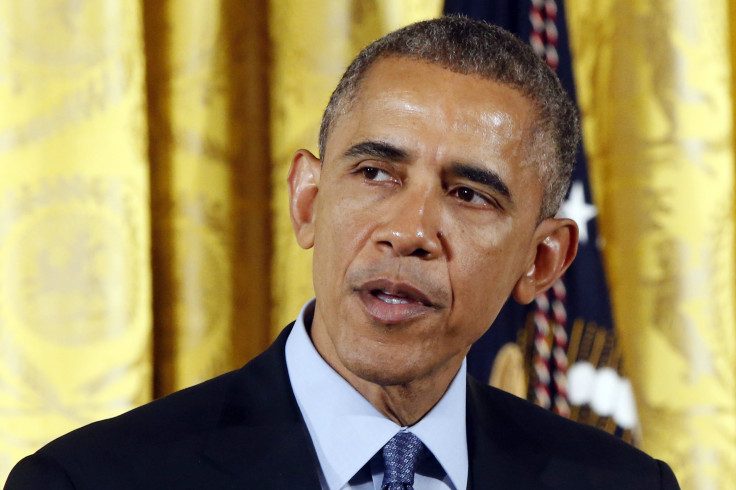Obama Says ISIS Rise To Power An 'Unintended Consequence' Of US Invasion Of Iraq

United States President Barack Obama has called the rise of ISIS in the Middle East as part of “unintended consequences” when the U.S. invaded Iraq in 2003. The president said that simply defeating the extremist group would not be enough due to the presence of “disaffected Sunnis” in different parts of the world.
Mr Obama said in an interview with Vice News that ISIS is the “direct outgrowth” of al Qaeda in Iraq as a consequence of the U.S. invasion in the country. He added that the U.S. should “generally aim before we shoot.” It was during the administration of former President George W. Bush that U.S. troops invaded Iraq.
For the last several months, the U.S. and its allies in the international coalition have bombed ISIS targets in Iraq and Syria. The White House has ruled out the deployment of U.S. ground troops to fight ISIS militants, reports CBS.
Mr Obama said the coalition has 60 member countries that can slowly push back the advances of the group out of Iraq. The U.S. president is confident that the coalition can achieve its goal.
However, Mr Obama said more work has to be done to defeat ISIS. He explained that he is worried about the underlying problem of disaffected Sunnis particularly in areas like Libya and Yemen. He believes the world will have to deal with young men who are looking for ways to get respect and power since they grew up with no education and options for the future. Previous reports have indicated that these men are believed to be prone to radicalisation.
Mr Obama said that in order for the U.S. to fight terrorism, a more comprehensive approach must be taken. He called for more investments in education and diplomacy to prevent terrorism.
Meanwhile, volunteers from the U.S. with no connection to the U.S. military are helping the Kurds fight ISIS. The American volunteers have recently arrived in northern Iraq. Aaron Core, a volunteer from Tennessee, told NBC that he wanted to join the fight because he wanted to help people. He also missed being a soldier.
Core said the Peshmerga forces were grateful for the effort of the volunteers. He added that if ISIS had foreign fighters among its ranks, the Kurds could use the same benefit against the militants.
To report problems or leave feedback on this article, contact: r.su@ibtimes.com.au





















